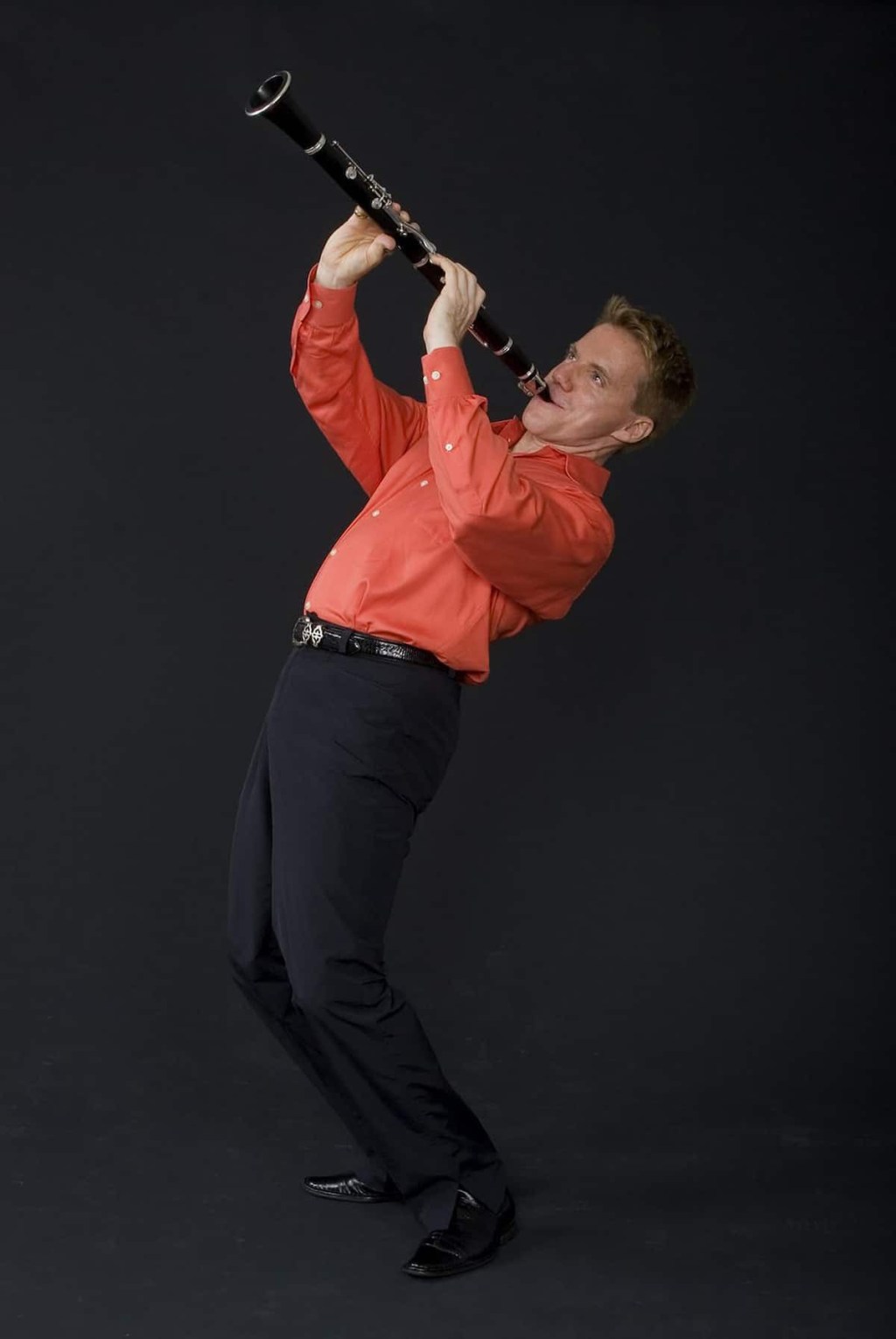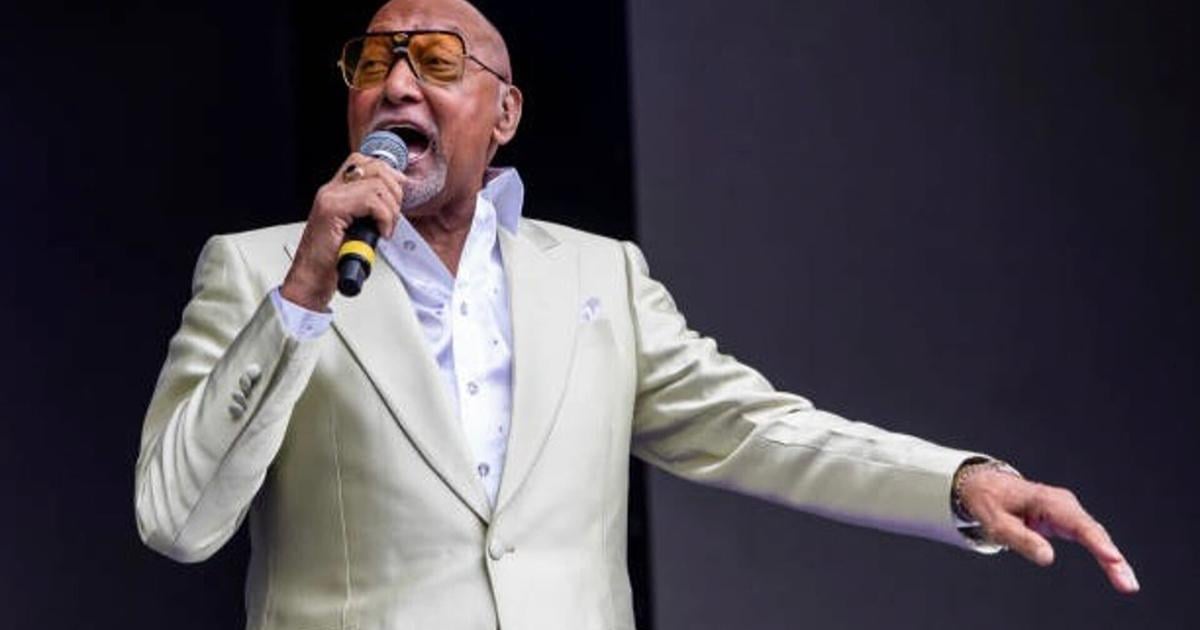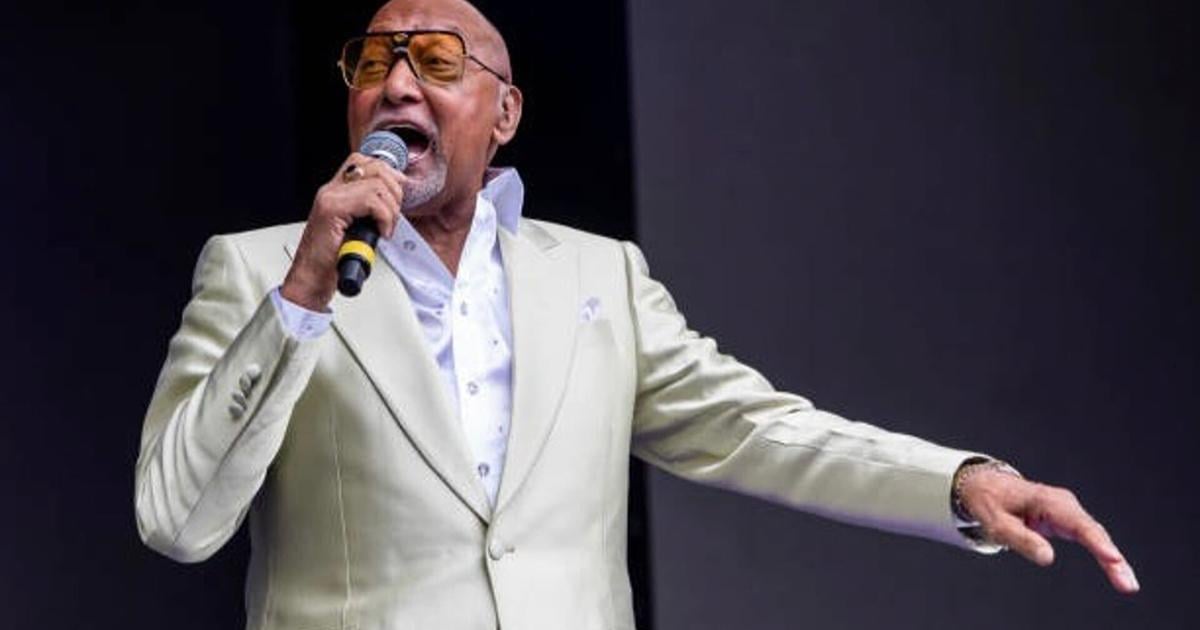The clarinet has a smooth, almost hollow sound, by turns cool and brilliant, with a dynamic range more remarkable than other woodwinds, possessing a haunting tone color in its lowest octave.
When we think of the clarinet and its unique sound, our minds may settle on a recording of Gershwin’s “Rhapsody in Blue” or a tune by Benny Goodman, for whom composer Aaron Copland, with a commission, specifically wrote his Clarinet Concerto, completing it in 1948. Goodman and the NBC Orchestra premiered it in 1950.
Clocking in at about 17 minutes, the concerto will be part of the Vallejo Symphony programs, with premier clarinetist Todd Palmer as featured guest soloist, during the orchestra’s Jan. 13 and 14 concerts at the Empress Theatre.
A two-movement piece, the first is notable for its somewhat jazzy melancholy sound, rooted in Brazilian folk music, with dramatic leaps for the clarinet, and sweet, rhapsodic tones accompanied by strings and harp. A cadenza serves as a bridge between the first and second movements, the latter marked by lively rhythms, suiting Goodman’s swinging technique, and the introduction of brief runs on piano. The music turns almost dance-like before it ends, with a wailing sound, as Palmer will perform, in the clarinet, highlighted by a glissando, or ( in jazz) a “smear.”
“I’ve performed it at least a dozen times,” Palmer, 63, said of the concerto during an interview Sunday from his Upper West Side residence in New York City. “It’s definitely one of the most popular clarinet concertos.”
A native of Hagerstown, Md., he first performed it in Washington, D.C., “the evening before my Kennedy Center debut the following afternoon,” he recalled, noting had won an audition with the Young Concert Artists organization.
Since then, having lived all of his adult life in New York City, Palmer, a three-time Grammy Award nominee, has appeared as a soloist, recitalist, chamber music collaborator, educator, arranger and presenter of musical performances across the world.

Just as a soloist, with symphonies and chamber orchestras, he has performed in ensembles from Houston and Atlanta to Cincinnati and Montreal, appeared in Carnegie Hall and at the 92nd Street Y in New York City. He has collaborated with celebrated artists and groups, among them the St. Lawrence and Pacifica string quartets and sopranos Kathleen Battle, Renee Fleming and Dawn Upshaw.
Palmer has championed and recorded Osvaldo Golijov’s klezmer clarinet quintet, “The Dreams and Prayers of Isaac the Blind” and commissioned Ricky Gordon’s theater work, “Orpheus and Euridice,” presented by Great Performers at Lincoln Center. He also premiered David Bruce’s “Gumboots” at Carnegie Hall and appeared as a soloist in director Robert La Page’s “The Nightingale and Other Fables” at the Brooklyn Academy of Music.
He gave the world premiere of “Crosswalk,” a new work for clarinet and dance especially created for him by famed choreographer Mark Morris. And he also has worked with, besides Golijov, composers Thomas Ades, Mason Bates and Ned Rorem.
It may come as a surprise to some, but even as a classically trained musician, Palmer helps to pay the rent with work on Broadway. He’s currently part of the pit orchestra for a revival of Stephen Sondheim’s “Sweeney Todd.” His other Broadway credits include revivals of Rodgers and Hammerstein’s “South Pacific” and “The King and I,” Schonberg’s “Les Miserables,” Lloyd Webber’s “Sunset Boulevard,” and Lerner and Loewe’s “My Fair Lady.”
The theater work, he said, “is a slice of bread and a couple pats of butter,” and has been part of his life for the past 15 years, off and on. His playing for “Sweeney Todd” began in March and will continue to May this year.
“I like being in the pit with a conductor,” said Palmer, adding, “It’s a very positive environment.”
He praised Morris’ “Crosswalk,” a piece he toured the world with for two years, calling the choreographer “a true artist.”
Palmer managed to attend the Grammy Awards because Golijov’s klezmer clarinet quintet was nominated for two honors. He called the composer “a long-standing friend.”
For Gordon’s “Orpheus and Euridice,” more than 20 years ago, he approached the composer to write a work specifically for clarinet. Palmer initially intended the piece to be shorter than the hourlong work it eventually became.
“I was really speechless,” he recalled, saying, “The inspiration came to him in the middle of the night. The really amazing thing about it was that it sat on shelf for 10 years. Very few sopranos would look at it. Finally, he approached the right soprano.”
“It was a mammoth production,” said Palmer of the 2005 theater work. “A dance company was involved,” and when it opened at Lincoln Center, it earned an Obie Award, an Off-Broadway honor similar to a Tony for a Broadway show.
“Then other people got interested it, and it went to Long Beach, where it was staged around a swimming pool,” he said. “It was so popular, the production went to Chicago,” where it was staged twice.
Palmer constantly reminds himself “how blessed” he is to do what he loves and “having music in my life.”
“I was not meant to do anything else,” he said. “I’ve been blown by the winds, from one musical endeavor after another. It’s a source of great joy for me.”

Part of the Vallejo Symphony’s 2023-24 Gershwin series, “Gershwin! A Jazz Genius,” this second of three season concerts, led by conductor Marc Taddei, is dubbed “An American in Paris.” It features the classic Gershwin work, with its impressions of street noise and big-city ambience, inspiring a 1951 movie of the same name.
For the concert’s second half, audiences will hear Georges Bizet’s Symphony in C, written in 1855 at age 17, which sonically owes a debt to Gounod and ends with a firestorm of colorful notes.
The symphony’s third concert in the series, “Porgy and Bess,” is set for April 20 and 21 and showcases soprano Tiffany Austin singing Gershwin’s classic songs arranged by Russell Garcia, as written for legendary singer Ella Fitzgerald and jazz trumpeter Louis Armstrong in 1959. The program will be presented in a semi-staged production alongside members of Verismo Opera.
“This will be without question one of the most important and unusual musical events in the Bay Area this season,” symphony spokesman Tim Zumwalt said in a prepared statement last year.
Preconcert talks, “Meet the Music,” are presented one hour before each orchestra performance and feature conversations between Taddei and guest artists, offering insights into the program, Zumwalt added.
Vallejo Symphony can be heard on the radio, KZCT-FM 89.5, and the remaining concerts will be aired at 10:30 a.m. Jan. 26; and 10:30 a.m. May 3.
In addition, guest artists will appear in live interviews and those program times will be posted on Facebook/VallejoSymphony.
IF YOU GO
What: Vallejo Symphony
When: 8 p.m. Jan. 13 and 3 p.m. Jan. 14
Where: Empress Theatre, 330 Virginia St., Vallejo
Tickets: $50 to $80. Group tickets, with discounts for 10 or more, are available
Online: www.vallejosymphony.org
Phone: (707) 643-4441





